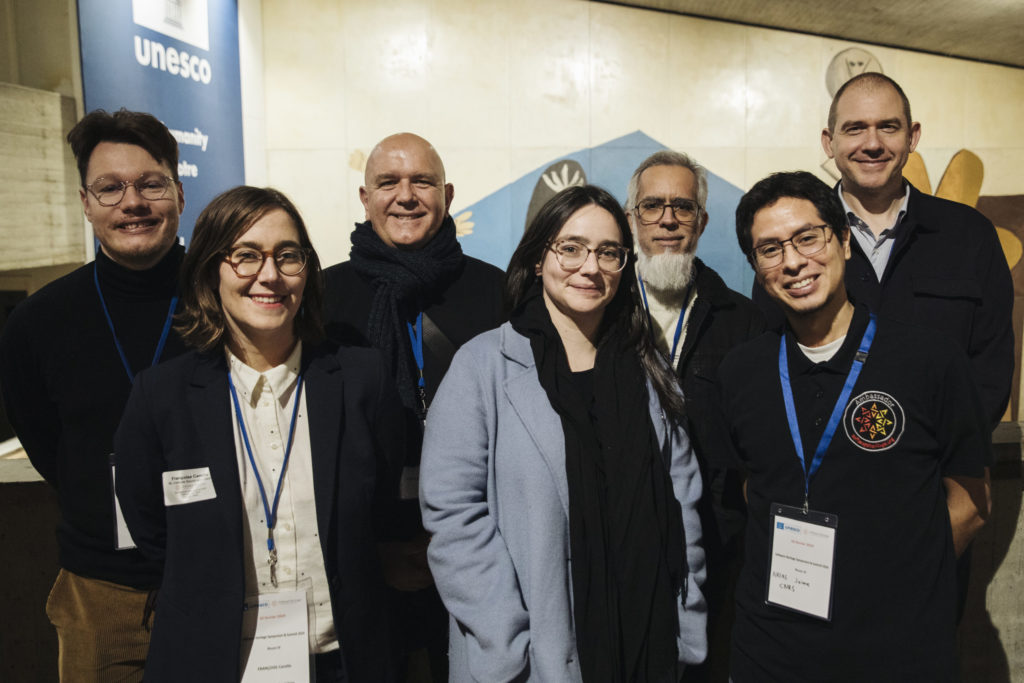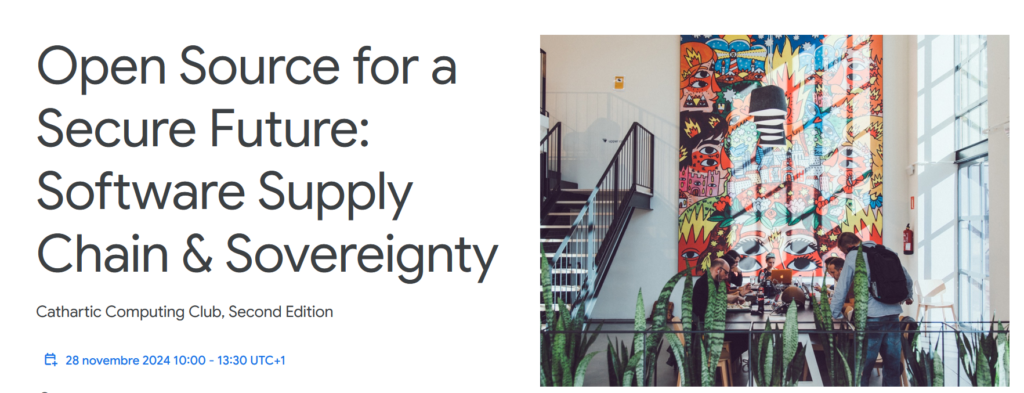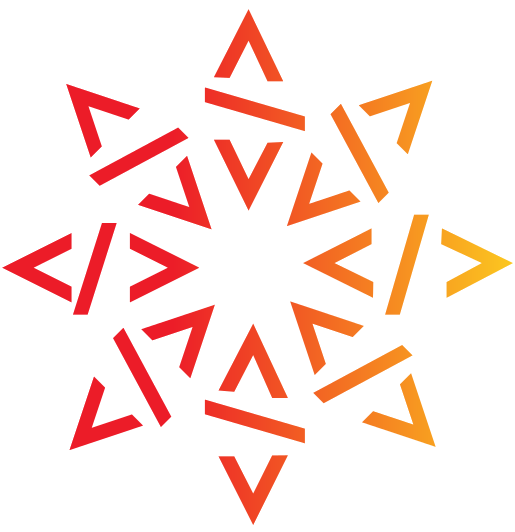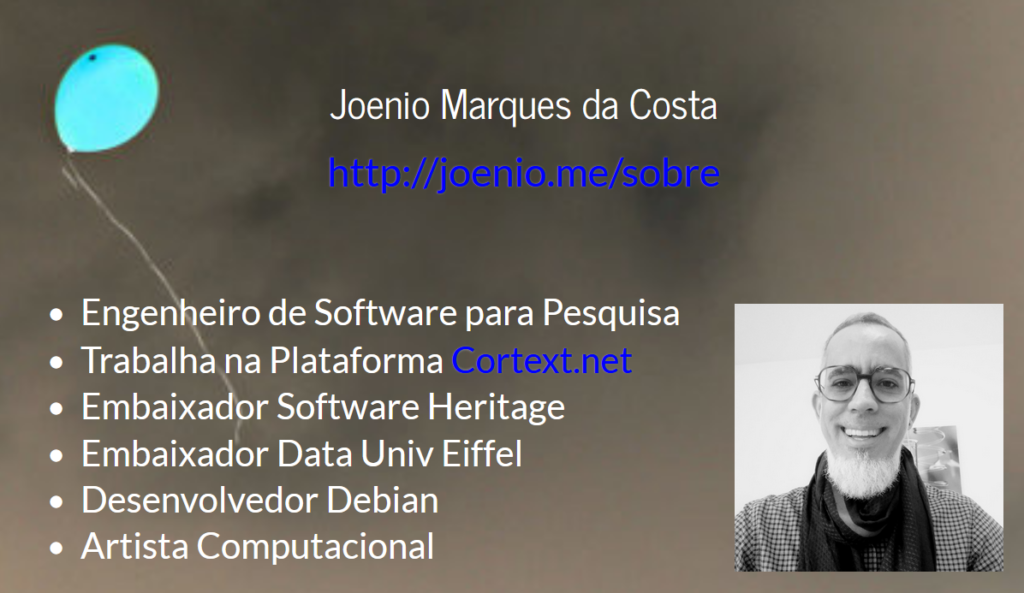Spotlight on Software Heritage Ambassadors

This blog post highlights the outstanding contributions of Software Heritage Ambassadors in 2024, serving as a source of inspiration for everyone who values the importance of preserving our digital heritage. Our Ambassadors are passionate individuals who volunteer their time to promote software preservation in many communities.
And if you’d like to book one for advice or become one, please do. Ambassadors come from various backgrounds, including academia, industry, culture, and public administration.
Here’s a look at some of the key activities our ambassadors did on behalf of Software Heritage in 2024:
- Presentations and Talks:
- Agustín Benito Bethencourt: Delivered presentations at various events, including the Biblioteca Nacional de España, Open Source for a Secure Future conference, and OpenSouthCode 2024. He also organized a meetup in La Palma.
- Baptiste Mélès: Gave a talk at Université de Lorraine. Did you know that the first public announcement regarding a forthcoming project named “Software Heritage” was made a decade ago during a session of the “Codes sources” seminar, co-founded by Mélès?
- Jaime Arias: Promoted Open Science initiatives within Sorbonne Paris North University‘s research departments during the webinar “Open Science talks,” hosted by the Centre pour la communication scientifique directe (CCSD). Notably, the university’s Open Science charter explicitly recognizes Software Heritage as a key component of its commitment to preserving and sharing research software.
- Joenio Marques da Costa: Explained the role of Software Heritage in his talk “Sustentabilidade de Software para Pesquisa: O papel do Software na Ciência”.
- Océane Valencia: Brought perspectives from an archivist viewpoint, at the conf “RIP Data : quelle sélection, conservation et suppression des données de recherche ?”.
- Frédéric Santos: Delivered a talk for research software engineers in social sciences at Data SHS Week. The presentation was followed by a practical session where participants learned to use the Software Heritage archive.

- Content Creation:
- Baptiste Mélès, with Cécile Arènes and Océane Valencia: Started translating the FAQ so that French speakers may read in their preferred language. Software Heritage will continue its efforts in multilingualism with the help of its vivid community. Stay tuned.
- Baptiste Mélès: created a Wikipedia page in Italian on Software Heritage.
- Camille Françoise: To foster a broader understanding of software preservation’s critical role in safeguarding our digital cultural heritage, she launched the “Towards Preserving Digital Culture” interview series, published in Medium. In this series, you’ll come across other Software Heritage friends such as our ambassador Wendy Hagenmaier and Kenneth Seals-Nutt, co-founder of Science Stories.
- Joenio Marques da Costa: Wrote a short introduction to Software Heritage in Portuguese.
- Mohammad Akhlaghi: Helps other researchers integrating Software Heritage in their daily publication workflow. See this article written by his PhD student Sepideh Eskandarlou: “This research note is created from the Git commit f1d6633, hosted on Codeberg 3 which is archived on Software Heritage 4 for longevity.” Other examples are available: “Gnuastro: Simulating the Exposure Map of a Pointing Pattern“; “Gnuastro: Estimating the Zero-point Magnitude in Astronomical Imaging“; “Gnuastro: Visualizing the Full Dynamic Range in Color Images“.

- Prioritizing software archiving in policy agendas, representing Software Heritage:
- Agustín Benito Bethencourt: Participated in an invitation-only session with representatives from open source/open data foundations and non-profits to define the role of these entities in collaborating with Spanish public administrations on behalf of Software Heritage.
- Bertrand Néron: Nurtures his collaboration with the librarians from the CERIS to help researchers from the Institut Pasteur to use the software deposit feature in French national open archive HAL.
- Bruno Khelifi: Worked on recommendations for the National Institute of Nuclear and Particle Physics (IN2P3/CNRS) direction within the “Données Ouvertes Pour les 2 Infinis” (DOP2I) working group. Khelifi also joined the Research Data Alliance.
- Frédéric Santos, Giacomo Lorenzetti, Joenio Marques da Costa and Maxence Azzouz-Thuderoz: Participated in the RSECon24, a key event for research software engineers. They shared their key takeaways with their fellow ambassadors.
- Jaime Arias: Supported decision-makers from this institution, Sorbonne Paris North University. As noted by his colleague Karim Boualem, “[Arias] played a central role by introducing Software Heritage into [the] new version of the Open Science Charter.” Arias also joined the “Software and Source Codes” College of the French Committee for Open Science.
- Maxence Azzouz-Thuderoz, with Morane Gruenpeter: Presented the ongoing work on FAIRCORE4EOSC at the Research Data Alliance Plenary. They explained how swMATH uses the SWHID to reference software.
- Pierre Poulain, with Stefano Zacchiroli: Attended the CZI Open Science meeting in Boston.
- Simon Phipps: Represents Software Heritage at the Open Regulatory Compliance Working Group. Among many other goals, Phipps seeks to integrate SWHID into significant capabilities used by the open source community.
- Violaine Louvet: Bears the primary responsibility for implementing the French National Catalogue for Research Software, which is part of the “Software and Source Codes” College of the French Committee for Open Science roadmap. The catalog will be based upon three pillars: Software Heritage, the French national open archive HAL, and the catalog’s interface developed by the French interministerial digital direction.
- Training:
- Alexis Lebis: Delivered doctoral trainings for MADIS (Mathematics and digital sciences) doctoral school in collaboration with the colleagues at LILLIAD. And at a more general level, Lebis adopted the motto “As open as possible, as closed as necessary” for the works of his PhD students. It raises thorniest legal questions, but Lebis is determined to walk the talk, by guiding in this maze new generations of researchers.
- Cécile Arènes with Océane Valencia: Delivered a training session during the “Data Spring”. Learning material is here. They identified the need to deliver guidance regarding Software Management Plans.
- Frédéric Santos with Baptiste Mélès and Sabrina Granger: Co-authored a lesson on software archiving for the French edition of Programming Historian. All contributed lessons in The Programming Historian strive to utilize open-source programming languages and software whenever possible. The Programming Historian has won multiple awards that recognize and celebrate achievements in open-access publishing and digital scholarship.
- Frédéric Santos: Wrote the software preservation and archiving entry in the learning resource linked to the national training on R packages development organized by the French National Center for Scientific Research.
- Sandrine Layrisse: Delivered a training action on “Migration of applications to cloud technologies” that included the code archiving workflow with Software Heritage. The training targeted French IT staff at the national level.

These are just a few examples of the outstanding work our ambassadors accomplished last year.
Their dedication significantly raised awareness of Software Heritage and its mission.
Want to take your projects to the next level? Book an ambassador today. Or, perhaps you’d like to contribute to the growth of the Software Heritage community? Learn how to become an Ambassador.

